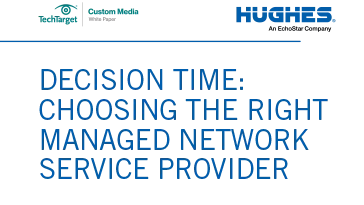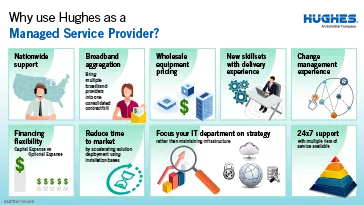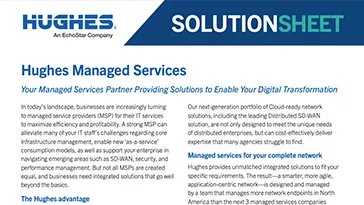The path from MPLS to SD-WAN
Don’t let outdated and costly technologies stand in the way of what’s possible for your business.
Multiprotocol Label Switching (MPLS) has been a great service for the last 25 years, but like all technology, it has run its course. The standard T1 line, with its 1.5 Mbps service is too small for today’s bandwidth-hungry apps and a growing number of users and devices. The costs are too high, especially in more remote areas where added costs are dictated by pricing based on circuit distance. In fact, cost savings of 60% to 70% are not uncommon when compared to broadband options! And even with new services like 3, 5, and 10 Mbps Ethernet the costs are still much higher than other IP-based broadband options. On top of all this, MPLS is inefficient in connecting to cloud services.
Network Nirvana
While considered private, reliable, and secure, MPLS networks are expensive and not at all agile. They’re just not designed to handle the high-volume WAN traffic associated with today’s enterprise. And the hub-and-spoke design that pushes all of the data through the data center is rigid, inefficient, and fails to provide resilient cloud connectivity. With the advent of Software-Defined Wide Area Networks (SD-WAN), there’s limited benefit to staying connected to MPLS. It may even hold your business back and prevent you from to transforming to achieve your business goals.
Advantages of SD-WAN
- Offers broadband cost savings over MPLS/T1 lines
- Eliminates MPLS bandwidth limitations
- Provides a forward-looking cloud architecture
- Is agnostic to WAN transport
- Delivers consistent performance
Related Resources

Understand the relative advantages and disadvantages of using MPLS and SD-WAN to meet evolving business needs.

What to consider as you evaluate whether an MNSP is the right fit for your business.

Nine reasons Hughes is your managed service provider of choice.

Hughes Managed Network Services solve your business challenged with agile, scalable an secure solutions.


Innovative enterprise solutions that fit your needs and enable digital transformation.

